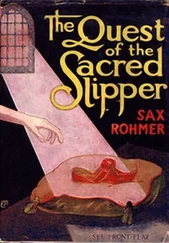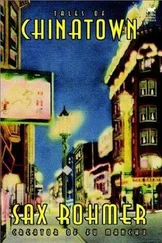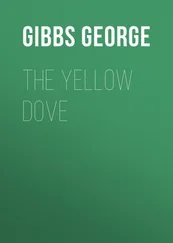Sax Rohmer - THE YELLOW CLAW
Здесь есть возможность читать онлайн «Sax Rohmer - THE YELLOW CLAW» — ознакомительный отрывок электронной книги совершенно бесплатно, а после прочтения отрывка купить полную версию. В некоторых случаях можно слушать аудио, скачать через торрент в формате fb2 и присутствует краткое содержание. Жанр: unrecognised, на немецком языке. Описание произведения, (предисловие) а так же отзывы посетителей доступны на портале библиотеки ЛибКат.
- Название:THE YELLOW CLAW
- Автор:
- Жанр:
- Год:неизвестен
- ISBN:нет данных
- Рейтинг книги:3 / 5. Голосов: 1
-
Избранное:Добавить в избранное
- Отзывы:
-
Ваша оценка:
- 60
- 1
- 2
- 3
- 4
- 5
THE YELLOW CLAW: краткое содержание, описание и аннотация
Предлагаем к чтению аннотацию, описание, краткое содержание или предисловие (зависит от того, что написал сам автор книги «THE YELLOW CLAW»). Если вы не нашли необходимую информацию о книге — напишите в комментариях, мы постараемся отыскать её.
THE YELLOW CLAW — читать онлайн ознакомительный отрывок
Ниже представлен текст книги, разбитый по страницам. Система сохранения места последней прочитанной страницы, позволяет с удобством читать онлайн бесплатно книгу «THE YELLOW CLAW», без необходимости каждый раз заново искать на чём Вы остановились. Поставьте закладку, и сможете в любой момент перейти на страницу, на которой закончили чтение.
Интервал:
Закладка:
clean-shaven, and inclined to pallor. The hirsute blue tinge about
the jaw and lips helped to accentuate the virile strength of the long,
flexible mouth, which could be humorous, which could be sorrowful, which
could be grim. In the dark eyes of the man lay a wealth of experience,
acquired in a lifelong pilgrimage among many peoples, and to many lands.
His dark brows were heavily marked, and his close-cut hair was splashed
with gray.
Let us glance at the lady who accepted his white-gloved hand, and who
sprang alertly onto the platform beside him.
She was a woman bordering on the forties, with a face of masculine
vigor, redeemed and effeminized, by splendid hazel eyes, the kindliest
imaginable. Obviously, the lady was one who had never married, who
despised, or affected to despise, members of the other sex, but who had
never learned to hate them; who had never grown soured, but who found
the world a garden of heedless children--of children who called for
mothering. Her athletic figure was clothed in a “sensible” tweed
traveling dress, and she wore a tweed hat pressed well on to her head,
and brown boots with the flattest heels conceivable. Add to this a
Scotch woolen muffler, and a pair of woolen gloves, and you have a
mental picture of the second traveler--a truly incongruous companion for
the first.
Joining the crowd pouring in the direction of the exit gates, the
two chatted together animatedly, both speaking English, and the man
employing that language with a perfect ease and command of words which
nevertheless failed to disguise his French nationality. He spoke with
an American accent; a phenomenon sometimes observable in one who has
learned his English in Paris.
The irritating formalities which beset the returning traveler--and the
lady distinctly was of the readily irritated type--were smoothed away by
the magic personality of her companion. Porters came at the beck of his
gloved hand; guards, catching his eye, saluted and were completely his
servants; ticket inspectors yielded to him the deference ordinarily
reserved for directors of the line.
Outside the station, then, her luggage having been stacked upon a cab,
the lady parted from her companion with assurances, which were returned,
that she should hope to improve the acquaintance.
The address to which the French gentleman politely requested the
cabman to drive, was that of a sound and old-established hotel in the
neighborhood of the Strand, and at no great distance from the station.
Then, having stood bareheaded until the cab turned out into the traffic
stream of that busy thoroughfare, the first traveler, whose baggage
consisted of a large suitcase, hailed a second cab and drove to the
Hotel Astoria--the usual objective of Americans.
Taking leave of him for the moment, let us follow the lady.
Her arrangements were very soon made at the hotel, and having removed
some of the travel-stains from her person and partaken of one cup of
China tea, respecting the quality whereof she delivered herself of some
caustic comments, she walked down into the Strand and mounted to the top
of a Victoria bound 'bus.
That she was not intimately acquainted with London, was a fact readily
observable by her fellow passengers; for as the 'bus went rolling
westward, from the large pocket of her Norfolk jacket she took out a
guide-book provided with numerous maps, and began composedly to consult
its complexities.
When the conductor came to collect her fare, she had made up her mind,
and was replacing the guidebook in her pocket.
“Put me down by the Storis, Victoria Street, conductor,” she directed,
and handed him a penny--the correct fare.
It chanced that at about the time, within a minute or so, of the
American lady's leaving the hotel, and just as red rays, the harbingers
of dusk, came creeping in at the latticed widow of her cozy work-room,
Helen Cumberly laid down her pen with a sigh. She stood up, mechanically
rearranging her hair as she did so, and crossed the corridor to her
bedroom, the window whereof overlooked the Square.
She peered down into the central garden. A common-looking man sat upon
a bench, apparently watching the labors of the gardener, which consisted
at the moment of the spiking of scraps of paper which disfigured the
green carpet of the lawn.
Helen returned to her writing-table and reseated herself. Kindly
twilight veiled her, and a chatty sparrow who perched upon the
window-ledge pretended that he had not noticed two tears which trembled,
quivering, upon the girl's lashes. Almost unconsciously, for it was an
established custom, she sprinkled crumbs from the tea-tray beside her
upon the ledge, whilst the tears dropped upon a written page and two
more appeared in turn upon her lashes.
The sparrow supped enthusiastically, being joined in his repast by two
talkative companions. As the last fragments dropped from the girl's
white fingers, she withdrew her hand, and slowly--very slowly--her head
sank down, pillowed upon her arms.
For some five minutes she cried silently; the sparrows, unheeded, bade
her good night, and flew to their nests in the trees of the Square.
Then, very resolutely, as if inspired by a settled purpose, she stood up
and recrossed the corridor to her bedroom.
She turned on the lamp above the dressing-table and rapidly removed the
traces of her tears, contemplating in dismay a redness of her pretty
nose which did not prove entirely amenable to treatment with the
powder-puff. Finally, however, she switched off the light, and, going
out on to the landing, descended to the door of Henry Leroux's flat.
In reply to her ring, the maid, Ferris, opened the door. She wore her
hat and coat, and beside her on the floor stood a tin trunk.
“Why, Ferris!” cried Helen--“are you leaving?”
“I am indeed, miss!” said the girl, independently.
“But why? whatever will Mr. Leroux do?”
“He'll have to do the best he can. Cook's goin' too!”
“What! cook is going?”
“I am!” announced a deep, female voice.
And the cook appeared beside the maid.
“But whatever--” began Helen; then, realizing that she could achieve
no good end by such an attitude: “Tell Mr. Leroux,” she instructed the
maid, quietly, “that I wish to see him.”
Ferris glanced rapidly at her companion, as a man appeared on the
landing, to inquire in an abysmal tone, if “them boxes was ready to be
took?” Helen Cumberly forestalled an insolent refusal which the cook, by
furtive wink, counseled to the housemaid.
“Don't trouble,” she said, with an easy dignity reminiscent of her
father. “I will announce myself.”
She passed the servants, crossed the lobby, and rapped upon the study
door.
“Come in,” said the voice of Henry Leroux.
Helen opened the door. The place was in semidarkness, objects being but
dimly discernible. Leroux sat in his usual seat at the writing-table.
The room was in the utmost disorder, evidently having received no
attention since its overhauling by the police. Helen pressed the switch,
lighting the two lamps.
Leroux, at last, seemed in his proper element: he exhibited an unhealthy
pallor, and it was obvious that no razor had touched his chin for at
least three days. His dark blue eyes the eyes of a dreamer--were heavy
and dull, with shadows pooled below them. A biscuit-jar, a decanter and
Читать дальшеИнтервал:
Закладка:
Похожие книги на «THE YELLOW CLAW»
Представляем Вашему вниманию похожие книги на «THE YELLOW CLAW» списком для выбора. Мы отобрали схожую по названию и смыслу литературу в надежде предоставить читателям больше вариантов отыскать новые, интересные, ещё непрочитанные произведения.
Обсуждение, отзывы о книге «THE YELLOW CLAW» и просто собственные мнения читателей. Оставьте ваши комментарии, напишите, что Вы думаете о произведении, его смысле или главных героях. Укажите что конкретно понравилось, а что нет, и почему Вы так считаете.












